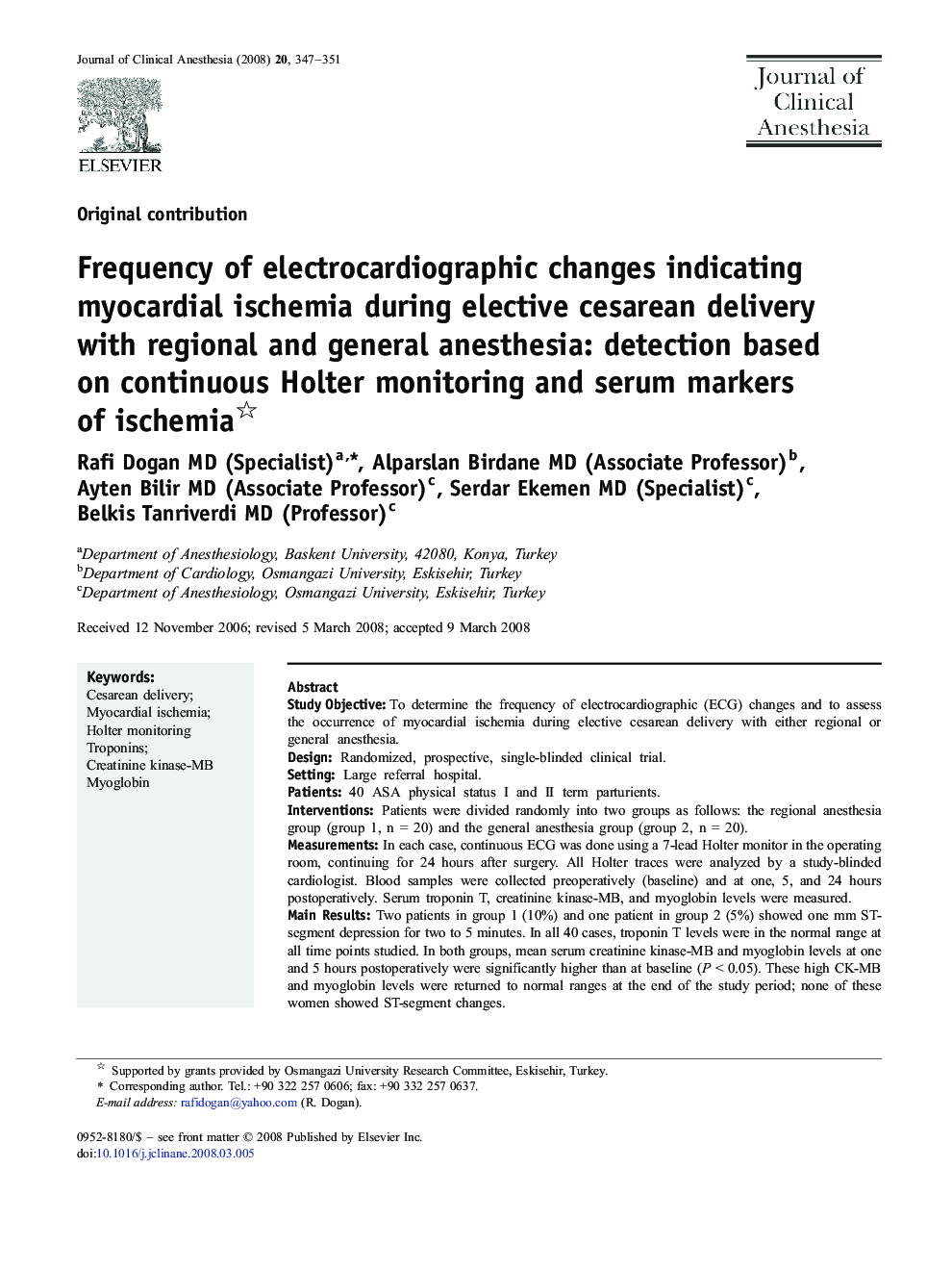| Article ID | Journal | Published Year | Pages | File Type |
|---|---|---|---|---|
| 2763684 | Journal of Clinical Anesthesia | 2008 | 5 Pages |
Study ObjectiveTo determine the frequency of electrocardiographic (ECG) changes and to assess the occurrence of myocardial ischemia during elective cesarean delivery with either regional or general anesthesia.DesignRandomized, prospective, single-blinded clinical trial.SettingLarge referral hospital.Patients40 ASA physical status I and II term parturients.InterventionsPatients were divided randomly into two groups as follows: the regional anesthesia group (group 1, n = 20) and the general anesthesia group (group 2, n = 20).MeasurementsIn each case, continuous ECG was done using a 7-lead Holter monitor in the operating room, continuing for 24 hours after surgery. All Holter traces were analyzed by a study-blinded cardiologist. Blood samples were collected preoperatively (baseline) and at one, 5, and 24 hours postoperatively. Serum troponin T, creatinine kinase-MB, and myoglobin levels were measured.Main ResultsTwo patients in group 1 (10%) and one patient in group 2 (5%) showed one mm ST-segment depression for two to 5 minutes. In all 40 cases, troponin T levels were in the normal range at all time points studied. In both groups, mean serum creatinine kinase-MB and myoglobin levels at one and 5 hours postoperatively were significantly higher than at baseline (P < 0.05). These high CK-MB and myoglobin levels were returned to normal ranges at the end of the study period; none of these women showed ST-segment changes.ConclusionThe ST-segment changes are not frequent in healthy women undergoing elective cesarean delivery during either regional or general anesthesia, and we found no evidence of myocardial injury.
